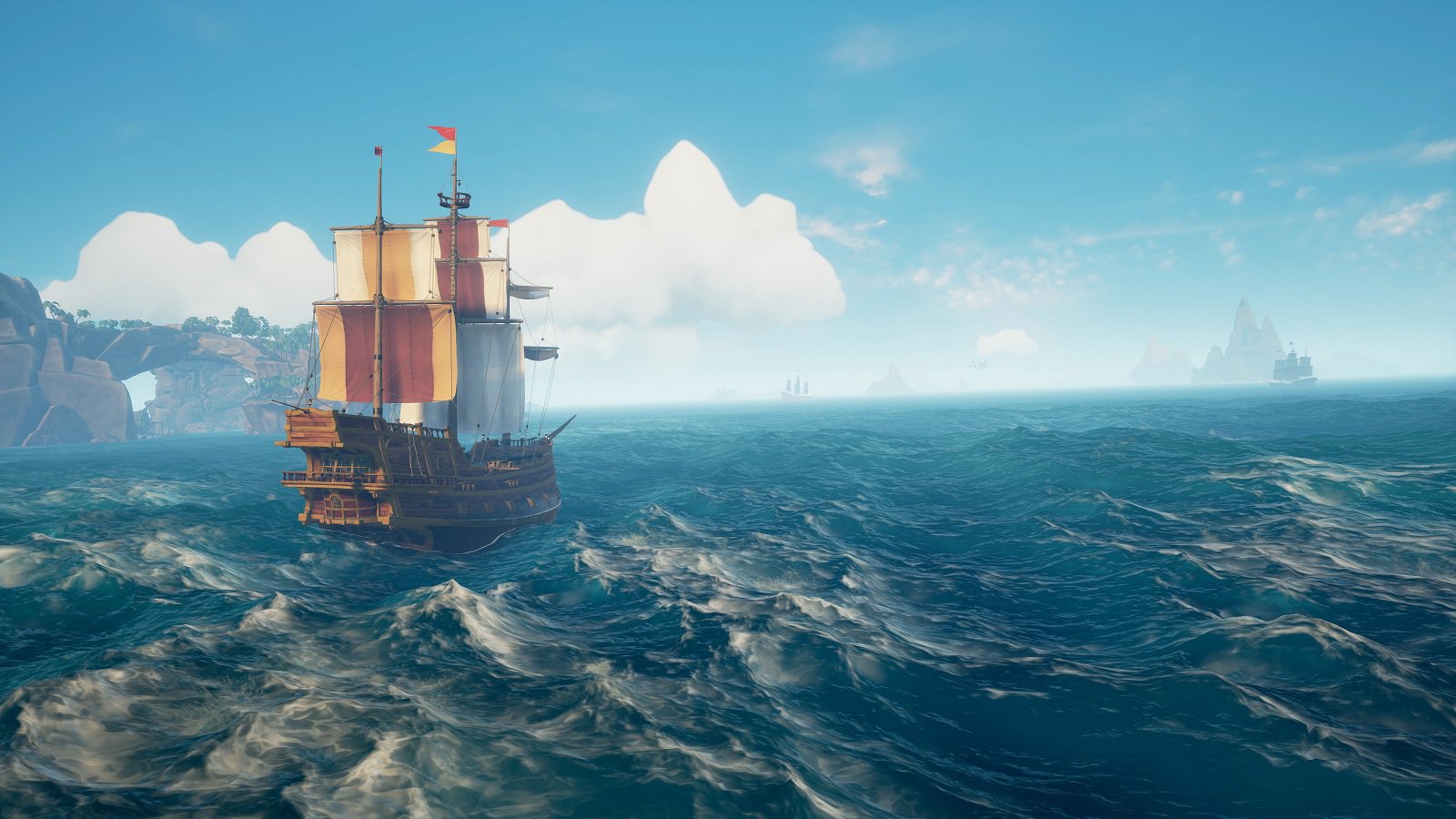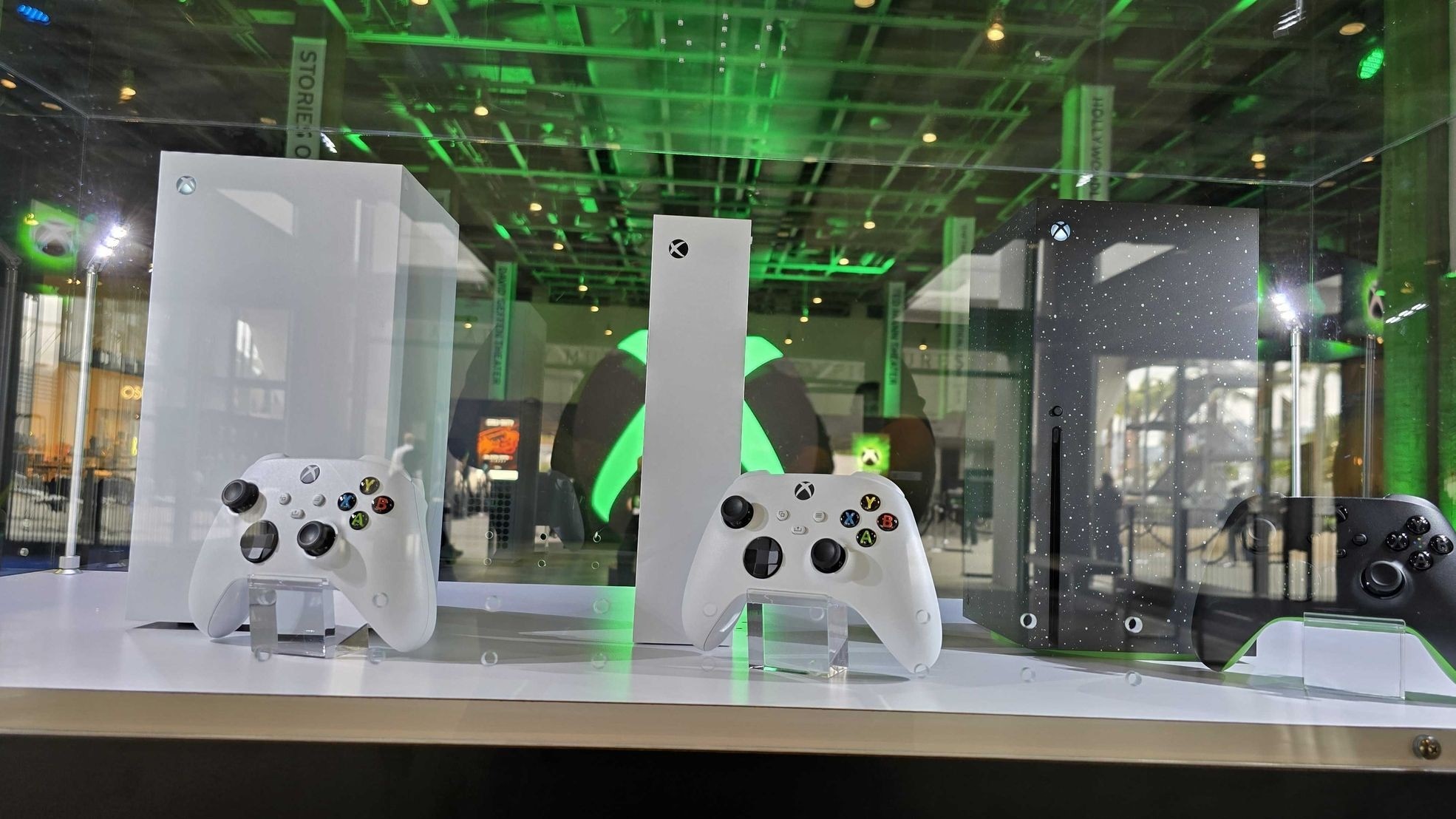It should be a celebration of Xbox’s massive upcoming games list, but instead the discussion is once again focusing on Microsoft’s overarching strategy.
Many Xbox fans are angry right now over the direction of the brand. Microsoft has put an increasing emphasis on platforms beyond Xbox console, focusing engineering efforts on fixing their PC offering, and repurposing Xbox console stock into cloud servers for their Xbox Cloud Gaming push. Since Microsoft’s bungled 2013 Xbox One messaging, it has felt like Xbox has been on the backfoot, switching strategies on a regular basis to accommodate a variety of predicted game industry trends — with said predictions not always panning out. A lack of transparency over Microsoft’s Xbox strategy has led to a generalized sense of confusion, culminating in diminished trust.
Xbox fans have begun extrapolating their own theories about Microsoft’s direction of late, which revolves around putting some of its core exclusive titles like Sea of Thieves onto its primary console competitor, PlayStation 5. The general common sense idea is that with fewer exclusive Xbox games, there are fewer reasons to buy an Xbox console. With Xbox Series X and PS5 virtually identical in performance in real terms, why buy the console that has fewer games? And stemming from that, if Xbox Series X|S sells fewer units, it decreases the likelihood of developers wanting to even support Xbox. Games like Black Myth Wukong, currently doing numbers in the millions on Steam, has famously prioritized PS5 over Xbox, for example. Last year, Baldur’s Gate 3 also prioritized PS5 over Xbox. Fans worry that the situation of “Xbox last” will only get worse, as console sales decrease. Wildly popular gatcha game Genshin Impact will finally arrive on Xbox in November, which is great — but it’s years late. Indeed, Microsoft itself admitted in a quarterly earnings call that Xbox hardware sales had decreased over 40% year-over-year.
Despite all the gloom on social media, Xbox CEO Phil Spencer outlined some of the thinking behind Microsoft’s current strategy, and why ultimately, you shouldn’t expect Xbox to change course any time soon.

The refreshed doom and gloom over Xbox comes in the form of Indiana Jones and the Great Circle, built by MachineGames — wholly owned by Xbox. Indiana Jones was announced as an Xbox and Windows exclusive, but rumors began to swirl last week that the exclusivity period will be limited. And indeed, Indiana Jones was confirmed for PlayStation 5 yesterday. The drip feed of broken promises and expectations continues to feed this idea that Xbox’s comments can’t be fully trusted, which is why I suspect that some of Xbox CEO Phil Spencer’s statements today may fall on deaf ears in some quarters.
In a new interview with Microsoft’s Xbox On channel, Xbox CEO Phil Spencer discussed the firm’s multiplatform strategy, and ultimately why you should expect even more games to hit PS5 in the future.
“I’ll start by saying MachineGames is doing such a nice job with [Indiana Jones], I thought it showed really well. That’s the most important thing, the quality of the games. It was just nice to get a long gameplay segment. Going to the PlayStation announcement, obviously last Spring, we launched four games, two of them on Switch and four of them on PlayStation. We said we’re going to learn. During the [June Xbox Showcase] I might’ve said ‘from our learning, we’re going to do more.’ What I see when I look, our franchises are getting stronger.”
Indeed, trusted sources have indicated to me that Sea of Thieves has crossed a million sales on PlayStation since its launch over there, and is most likely higher still since this information came to me. The game is currently selling for $40, so even when you disregard in-app purchases from the Sea of Thieves emporium, that’s at least around $40 million dollars additional income for Rare to hire and invest in growing that game out. You might wonder if the brand damage to Xbox is worth the income, though. Well, echoing previous comments made to investors by Microsoft CEO Satya Nadella, it doesn’t seem to be having a material impact on the growth of total Xbox One and Xbox Series X|S console players — at least for now.
🎒The best Back to School deals📝
“Our Xbox console players are as high this year as they’ve ever been,” Spencer emphasized. “So I look at it, and I say ‘our player numbers are going up for the console platform, our franchises are as strong as they’ve ever been.’ We run a business. It’s definitely true inside of Microsoft, the bar is high for us, in terms of the delivery we have to give back to the company. We get a level of support from [Microsoft] that’s just amazing in what we’re able to go and do. So I look at this like, how can we make our games as strong as possible. Our platform continues to grow on console, PC, and cloud, and it’s just a strategy that’s working for us.”
It’s certainly true that the total number of “console” players hasn’t grown in years, sitting at roughly 250 million at any one time. That’s why you’ve seen a lot of publishers in the industry quit their own PC launchers and return to Steam, such as EA. You’ve seen even PlayStation itself begin launching its titles on Windows PC to find new users. Costs inevitably always go up, which is why microtransactions, increased prices, and strategies like the above end up coming with it.
RELATED: New Xbox Series X|S consoles for 2024 go up for preorder
“I will also say that in our industry, there’s a lot of pressure within the industry. People are looking for ways to grow. Us, as fans, and players of games, we just have to anticipate that there’s going to be more change, and some of the traditional ways that games were built and distributed are just going to change. That’s going to change for all of us. The end result has to be better games that more people can play. If we’re not focused on that, we’re focused on the wrong things. So for us, health of Xbox, health of our platform, and growing our games are the most important things.”
When you take something away, you have to give something back
I would argue that most people knew that it wouldn’t end at “4 games” as suggested in the Xbox Spring business update from earlier in the year. We all pretty much knew Indiana Jones was the rumored game for announcement this week. I heavily hinted that Indiana Jones and the Great Circle was the game I was receiving rumors about in my write up from last week, although I really wanted some physical evidence before putting a full report together. It seemed a little odd, since Microsoft explained to the FTC in its Activision court case last year the lengths they had to go to to secure exclusivity on the game previously. Either way, it turned out to be true, and most core fans ultimately expected it.
RELATED: Indiana Jones and the Great Circle has way more depth than you thought
What I suppose they didn’t expect was the way Microsoft framed it at their Gamescom event. Announced as a “one more thing” hype beat after showcasing the game itself (which looks fantastic by the way), Microsoft revealed Indiana Jones’ is coming to PlayStation 5 in the spring. Now, nobody is talking about the game itself, they’re all just talking about the implications for Xbox’s strategy, and what game will go next to PlayStation.
I think most people understand why the industry is changing, but the lack of visible investment in features for the Xbox console platform is driving a lot of this fear that Microsoft is operating Xbox console in some form of managed decline. This is basically the inverse of the momentum-building marketing beats Microsoft had crafted with its Xbox backward compatibility program, where players speculated on which Xbox 360 games would hit the Xbox One and Xbox Series X|S emulator. The positivity and excitement those nostalgic beats brought to the community gave Xbox a burst of momentum. Now instead, the community is speculating when games like Forza, Starfield, or Halo will hit PlayStation, further diminishing the value of the Xbox platform in earnest. Maybe it would be better if Microsoft just ripped the band aid off and delivered a full roadmap of what to expect. The current strategy is just misleading at best. It’s deceptive to say something is exclusively Xbox and Windows, only to then back track it quite bombastically with a “one more thing” hype beat. How are customers supposed to trust comments that everything is just swell and dandy at Xbox HQ?
Microsoft’s drip feed of bad Xbox news is dismantling every scrap of goodwill Xbox fought to recover after 2013’s disastrous viral DRM debacle, while unmaking Xbox’s best exclusive in the process — its community.
Ultimately, the way all of this is being framed as a firehose of quarterly negativity is a masterclass in bad product marketing. Microsoft’s drip feed of “bad” Xbox news is dismantling every scrap of goodwill Xbox fought to recover with its core after 2013’s disastrous viral DRM debacle, while unmaking Xbox’s best exclusive in the process — its community. It’s overshadowing and undermining discussion around its actual games line-up, doing a disservice to developers under the Xbox umbrella, and a disservice to fans who have stuck through the platform through a decade of pure faith. This is without getting into things like the handling of Halo, and years of mediocre game launches. Xbox has done a lot of great stuff and had a lot of wins, but so few of those “wins” fall represent exclusive investment in console customers these days, whether it’s via features or otherwise.
Just as Xbox finally gets its games pipeline in order, the impression that Xbox console is on the lowest rung of Microsoft’s priority list is hard to overlook. I’ve pleaded the case that if Microsoft is going to take reasons to own an Xbox over other platforms away from its console customers, it needs to explore ways it can give back. Increasingly, I’m not sure that’ll happen. But hey, maybe none of it matters, and I’m just an old man yelling at the Xbox cloud.






